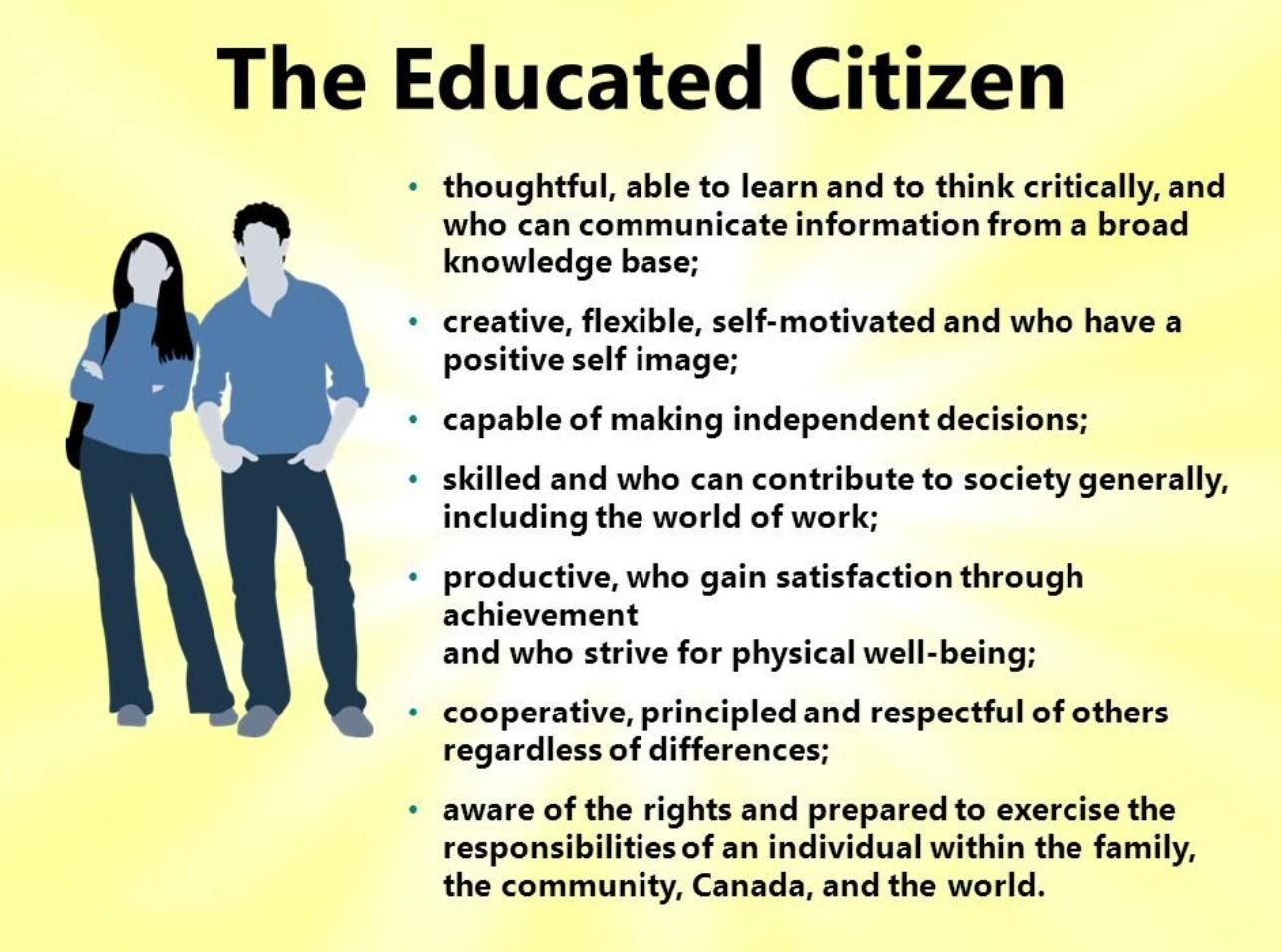Parent Resources
MyEducation Family Portal - Online Report Cards - Pilot program, 2025-26 in limited schools
MyEducationBC (MyEd BC) is a secure student information system set up by the province of BC. Security follows all regulations of the School Act and Freedom of Information and Protection of Privacy Act (FIPPA).
The MyEd BC FamilyPortal is available for parents & guardians to access:
- Attendance Information
- Learning Updates
- Gradebook marks (for those classes using the MyEd BC Gradebook)
- Your current contact information
- Individual Education Plans (and progress reports)
- Verification sheets
- Course Schedules
This system will be piloted at Evelyn Dickson Elem, Fraser Lake Elem-Sec, and William Konkin Elem starting the the spring of 2025. We expect this pilot will continue in the 2024/25 school year, with full implementation across the district in the fall of 2026.
Parent/Guardian Instructions:
Always use this URL to find the MyEducation BC login page:
https://www.myeducation.gov.bc.ca/aspen
If necessary, you can reset your password with the “I forgot my password” link. The application will prompt for your login ID, your email address, and the answer to the security question that you defined. If all information is correct, a temporary system-generated password will be emailed.
Reminder: You can avoid resetting your password every 90 days using your BC Services card to log in. More information here:
BC Service Card Single Sign-on Instructions
Here are some video links that may help:
Initial login process: https://youtu.be/vf6WMPKV8Vo
Viewing your child’s attendance and achievement information: https://youtu.be/a7yd2ZZz0XQ
Collecting reports with a computer: https://youtu.be/-c0Yq5EH2Wg
Collecting reports with a phone: https://youtu.be/Bux6jdcVhbs
For assistance with your MyEd account, please contact: L1support@sd91.bc.ca
Learning Through Play - Welcome to Kindergarten!
Literacy Learning
District Information and Steps for Resolving Concerns
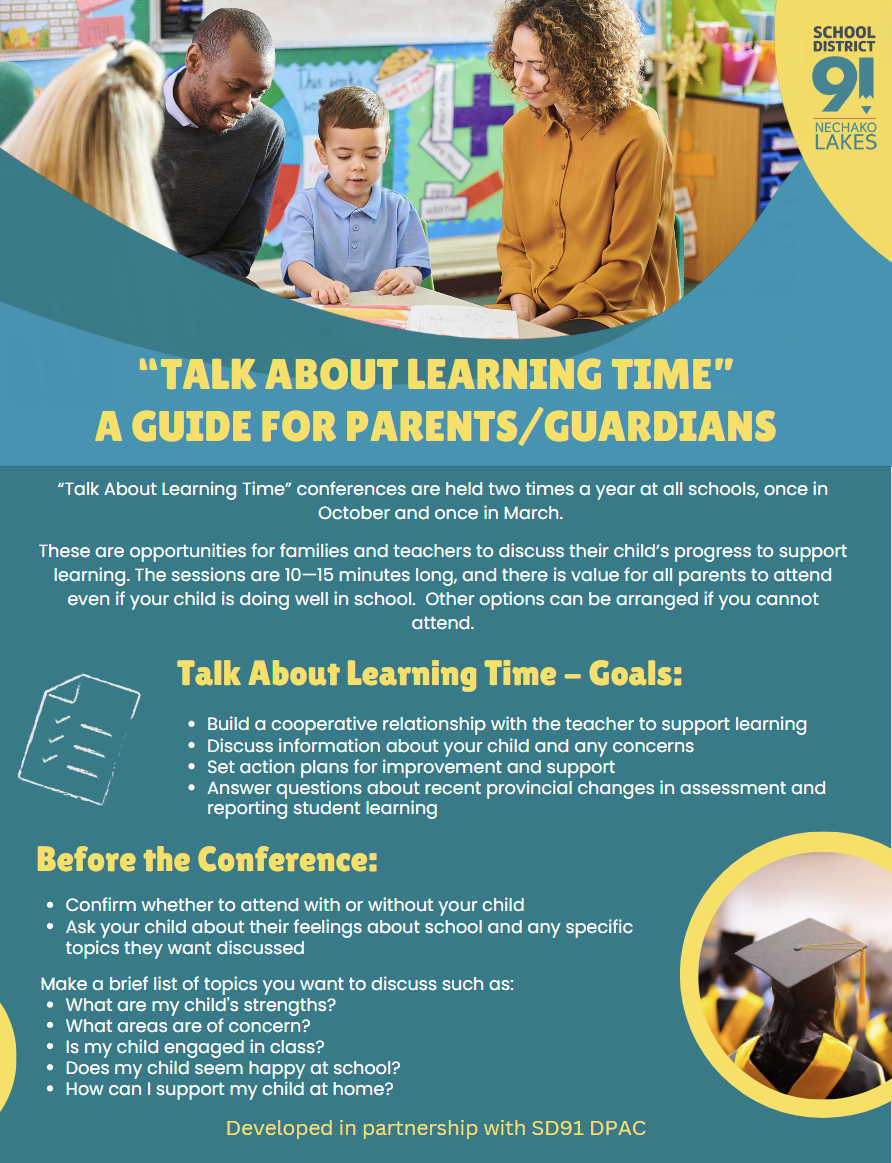
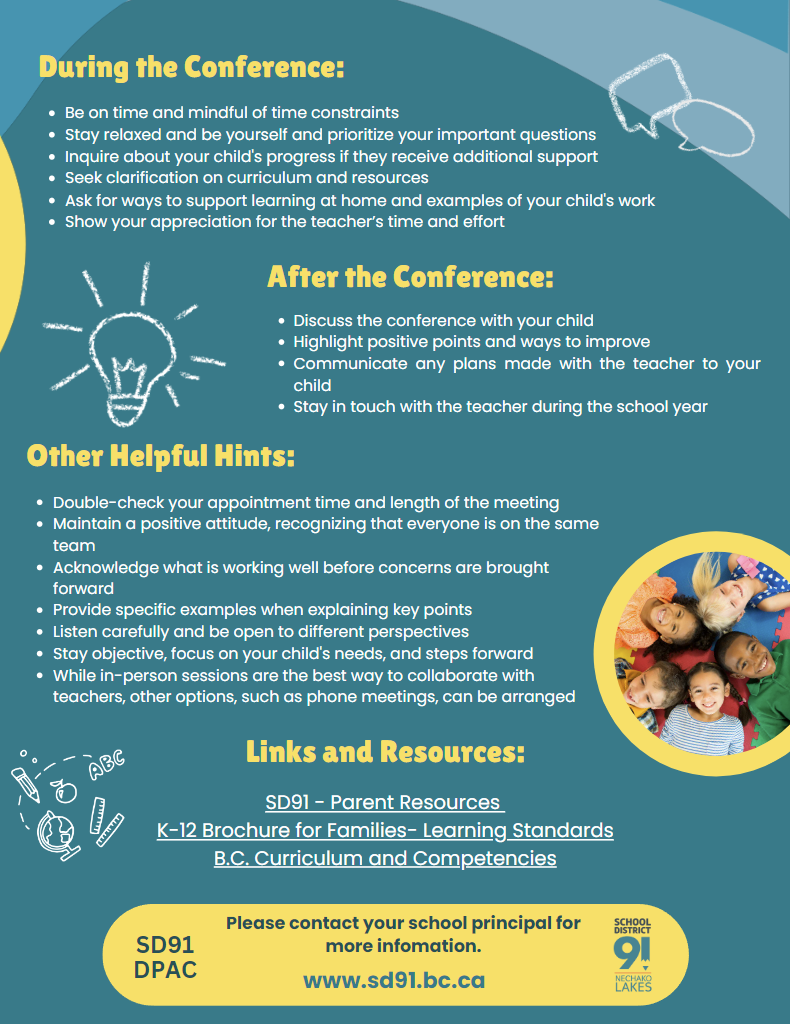
The District seeks to ensure that concerns about personnel, programs or procedures are dealt with in a manner that reflects mutual respect and the principles of administrative fairness.
Steps to Addressing Concerns
From Regulations 204.4R
Our goal is to resolve concerns in Step 1. People have options to move through the steps up to the Superintendent if a resolution is not achieved in the first three steps.
Step 1: Employee • Discuss the concern with the employee. Most concerns are often resolved at this step.
Step 2: Principal/Vice Principal or Department Manager • Discuss the concern with the school principal/vice principal or department manager. Principals/vice principals and department managers will review the concern(s) and work towards possible solutions.
Step 3: School/Department Supervisor at Board Office • Contact the district staff who is the supervisor for the school or department. This information can be obtained by calling the School Board Office.
Step 4: Superintendent of Schools • Provide your concern, in writing, to the Superintendent of Schools. To obtain contact information for the Superintendent, call the School Board Office.
Note: Serious concerns regarding school and district-level administrators should be directed to the Superintendent of Schools. If the concern is regarding the Superintendent of Schools, concerns should be directed to the Secretary-Treasurer.
If you are unsure who to contact or need assistance with this information, please call the Board Office at 250-567-2284.
Appeals
Certain circumstances can be appealed beyond the Superintendent to the Board of Education or provincial level.
If there is no successful resolution at Step 4, certain concerns that significantly affect the education, health or safety of a student, may be eligible for appeal to the Board of Education and possibly the Ministry of Education and Child Care. A community member, parent/guardian and/or student may give a written ‘Notice of Appeal’ to the Board of Education through Bylaw - 500.2: Appeals Procedure in accordance with Section 11 of the School Act.
A complaint involving a teacher or other certified staff member may be brought to the Ministry of Education and Child Care. Full information on the complaint process can be found on the Commissioner for Teacher Regulation website.
Foundation Skills Assessment (FSA) Information
The Foundation Skills Assessment is an annual province-wide assessment of all B.C. students’ academic skills in grades 4 and 7, and provides parents, teachers, schools, school districts and the ministry with important information on how well students are progressing in the foundation skills of Literacy and Numeracy.
Click HERE for more information on FSAs.
K-12 Student Reporting
On the Ministry curriculum website, you will find a resource page for educators and school leaders that includes a recorded presentation of the engagement sessions from this spring and links to the new resource page for parents and caregivers.

The new BC Learning Pathways is also now live on the provincial website. Previously referred to as updated Performance Standards, BC Learning Pathways is a series of resources that support teachers in developing student literacy and numeracy skills in all learning areas. BC Learning Pathways support teachers with planning, teaching, classroom assessment, and reporting of student learning.
The Ministry of Education and Child Care is revamping its K-12 student reporting policy, starting from the 2023-2024 academic year. This will modify the way schools convey learning progress to students and parents through what was formerly known as report cards and interim reports.
The objectives of sharing student learning information are to ensure that communication between home and school is effective and timely, so that:
- Parents are well informed about their child's progress;
- Students receive meaningful information that helps them improve their learning;
- Parents participate as partners in discussing their child's progress and optimal ways to support and enhance learning
What Remains the Same
- Five learning communication instances: 3 written and 2 in a flexible format
- Written descriptive feedback and accompanying scale or letter grade/percentage
- Letter grades and percentages for Grades 10-12
What's Changing
- Student reporting practices aligning with B.C.'s curriculum and provincial assessment system
- Provincial Proficiency Scale for Grades K-9
- Graduation status updates for Grades 10-12
- Student self-assessment of Core Competencies and goal setting in all grades within the 3 written reports
- Changing the "I" reporting symbol to "IE" to signify "insufficient evidence" of learning rather than "incomplete" learning
- All students, including those with disabilities or diverse abilities, will receive regular learning communications like their peers in other programs.
Student Self-Assessment of Core Competencies
Core competencies encompass intellectual, personal, and social-emotional skills that all students need to cultivate for deeper lifelong learning. The aim is for students to apply core competencies across all aspects of their lives.
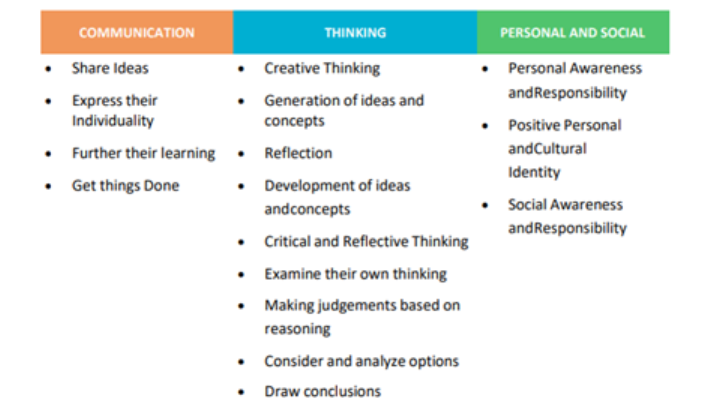
K-9 Proficiency Scale
The revised Provincial Proficiency Scale offers students and parents/guardians a transparent understanding of the student's current abilities and areas for growth. This scale will replace percentages and letter grades for kindergarten to Grade 9. The scale provides strength-based descriptive feedback to communicate student progress and identify subsequent steps to support learning.
The Emerging (EMG) - Developing (DEV) - Proficient (PRF) - Extending (EXT) scale is already employed in the Provincial Assessments for Grades 4, 7, 10, and 12. The Proficiency Scale will be utilized in learning updates and summaries of learning (formerly known as report cards) starting in the 2023-2024 academic year.
Official Ministry Verison
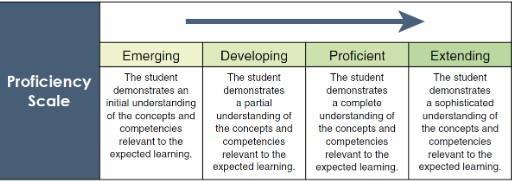
Common Language Version for Parents/Guardians and Students
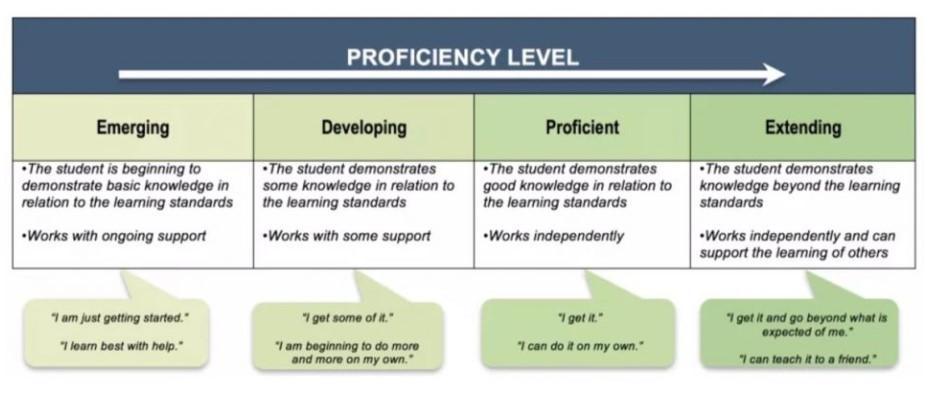
Strength-Based Feedback
The feedback received through the provincial proficiency scale will be enhanced by strength-based written feedback. Using a strength-based approach, all written descriptive comments will outline students' strengths (what they know, do, and understand), areas for improvement/development, and specific steps to progress concerning grade-level learning standards.
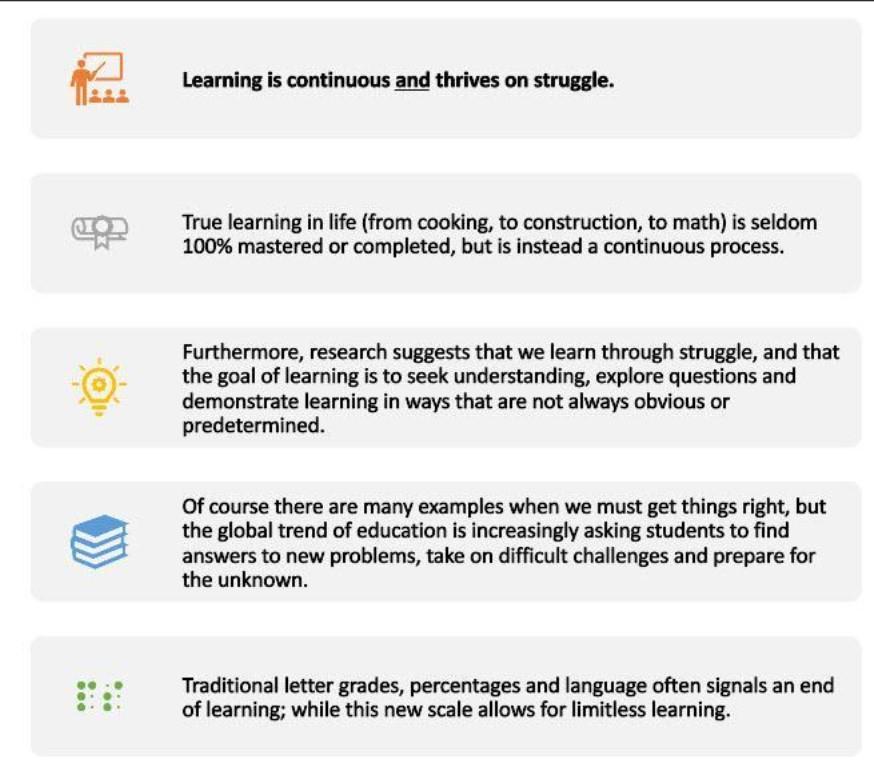
K-12 Reporting - Brochure for families Grade-level learning standards for each subject and grade-level
SD91 Counselling Services Information
Qualified School District 91 counselling staff are committed to supporting the wellbeing and healthy development of children enrolled in local area schools.
French Immersion in Nechako Lakes
The French Immersion program is based out of W.L. McLeod Elementary in Vanderhoof.
Many parents also believe that French Immersion will give their children additional career opportunities. The French Immersion program is open to any student in kindergarten or starting grade 1. Out-of-district families are accommodated when possible. A child needs prior knowledge of French to enter the French Immersion program after the beginning of grade 1.
What about English?
While there may be an initial lag in some English skills in the primary years, immersion students rapidly catch up to students in regular programs during the intermediate years.
Percentage of French used by grade level?
In grades K-2 English may be used at the outset to establish routines. After this, English is used only if necessary and in exceptional circumstances. Please feel free to contact W.L. McLeod (250)567-2267 for more information.
Office 365 Training and Resources
Nechako Lakes School District uses a Microsoft Based Computing Environment. To access training, downloadable guides and information on using the Microsoft Office products, please click here.
Links and Resources
Core competencies and their integration into the curriculum
| Links to Other Resources: | |
| » School Calendar | » Ministry of Education and Child Care |
| » Bus Routes | » Spaces EDU |
| » Contact Us | » Anti-Bullying Resources |
| » Scholarships Info | » BC’s Curriculum |



